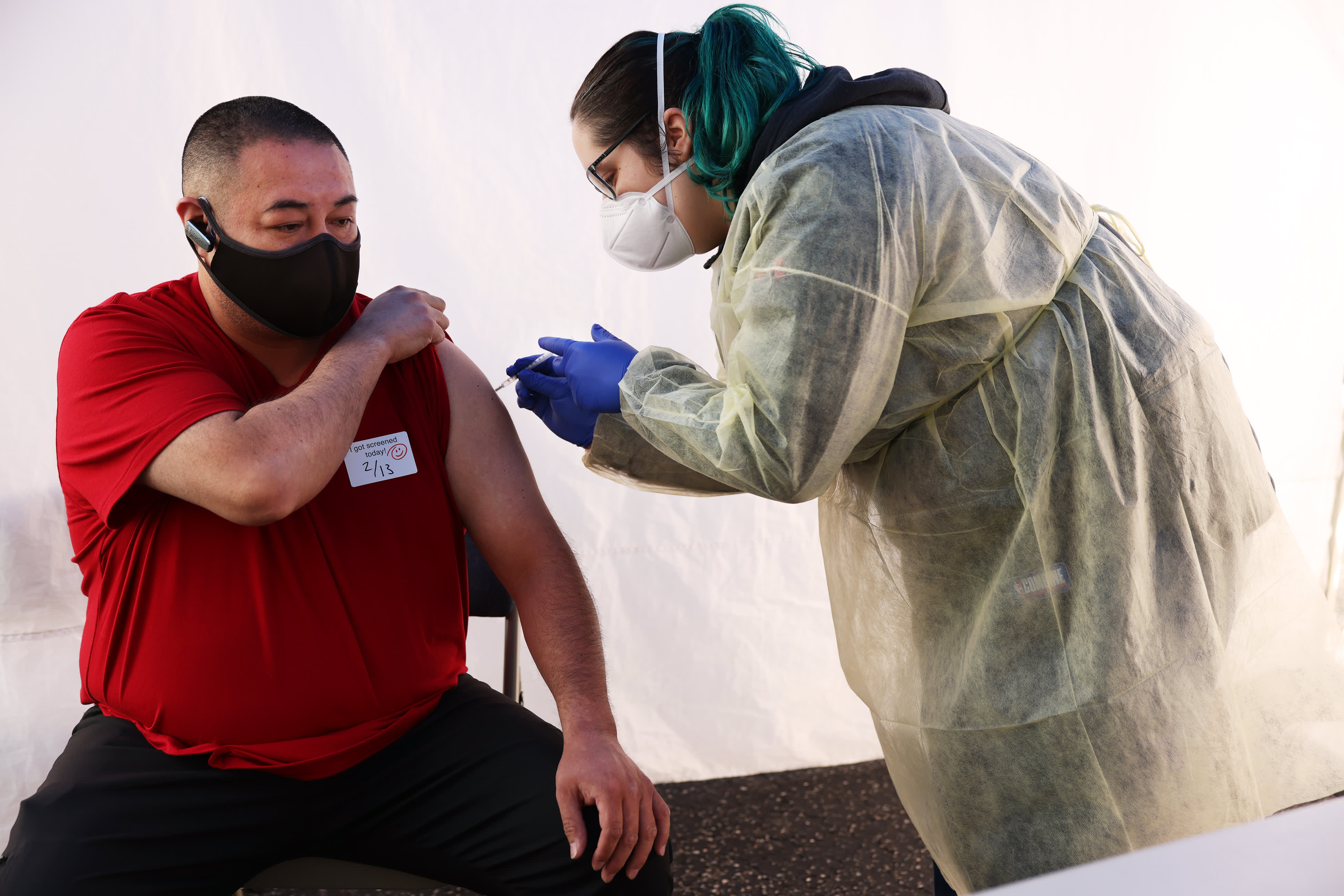Erick Vazquez receives the Pfizer vaccine during an event to inoculate nearly 500 health professionals and adults over 65 years of age against COVID-19 applied by the Community Labor Services, the Los Angeles Federation of Labor and the Children’s Center and Familiar St. Johns Well coined Labor of Love, at Pico Union, February 13, 2021 in Los Angeles, CA.
Dania Maxwell | Los Angeles Times | Getty Images
The Food and Drug Administration said on Monday that Covid-19’s modified vaccines against new emerging variants could be authorized without the need for lengthy clinical trials.
The new guidance, released in a 24-page document on the FDA’s website, would release the new vaccines as an amendment to the emergency use application originally approved by the company, according to the FDA. The company would need to present new data to show that the modified vaccine produces a similar immune response and is safe, similar to the process for annual flu vaccines.
“Preliminary clinical trial reports evaluating candidate COVID-19 vaccines in several countries, including South Africa, have raised concerns that the vaccine’s effectiveness against variant B.1.351 may be less than against the original virus,” wrote the agency in the document, referring to the strain found in South Africa. “Therefore, there is an urgent need to initiate the development and evaluation of vaccines against these variants of SARSCoV-2.”
The updated guidance comes at a time when US health officials, including White House chief medical advisor, Dr. Anthony Fauci, are concerned that the virus has mutated enough to escape protection from current vaccines and reverse the progress made in the pandemic.
In recent weeks, officials have urged Americans to get vaccinated as soon as possible before new and even more dangerous variants of the virus emerge.
As of Sunday, the Centers for Disease Control and Prevention had identified 1,661 cases of variant B.1.1.7 first identified in the United Kingdom. The agency identified 22 cases of strain B.1.351 from South Africa, as well as five cases of P .1, a variant identified for the first time in Brazil.
The FDA authorized Pfizer and Moderna vaccines for emergency use in December, and the two pharmaceutical companies have already announced plans to modify their vaccines to target new variants. Guidance can accelerate the regulatory review process for vaccines.
Public health officials and infectious disease experts said there is a high likelihood that Covid-19 will become an endemic disease, meaning that it will never entirely disappear, although it is likely to spread at lower levels than now. Health officials will have to continually watch for new variants of the virus so that scientists can produce vaccines to fight them, say medical experts.
Richard Webby, who runs a World Health Organization flu center at St. Jude Children’s Research Hospital, said the process for releasing modified Covid-19 vaccines could end up being very similar to the process for annual flu vaccines.
The United States and other nations will need to increase surveillance of new strains and then make periodic recommendations on what variants the shots should have, he said in a recent report. “For Covid, this is not there now.”
